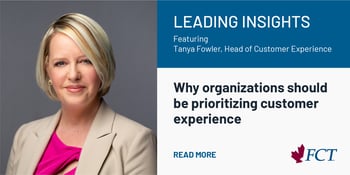
Data is everywhere. People are talking about it, sharing it, stealing it, hiding it, using it to target ads, and whatever they can think of! So, what’s the big deal about data anyway?
At the heart of it, data is information, and it can be studied to find patterns, trends, make predictions and manage risk. Increasing access to data, data analysis and automation have started driving decision making in every industry, including real estate.
Today’s customers expect a seamless home buying and selling experience. As data continues to evolve and become more accessible, it helps all those involved in a real estate transaction to develop a deeper understanding of what drives the market, which in turn drives competition.
“As we move towards a digital era, data transparency and connectivity will not only allow for a better customer experience, it will also enable each party in the real estate transaction to become more efficient, thorough and accountable.
Jon Castellano, Director, Product & Business Development, FCT.
Realtors are part of a very competitive landscape; they can leverage data to help them generate leads. By using open data sets such as Stats Canada and Census Data, they can not only identify patterns of purchase and sale, but move their efforts upstream by knowing when someone is going to sell their home before they even think about listing it. What compliments these data sources is the process of automation. The ability to create an Agreement of Purchase and Sale in seconds with pre-populated accurate data, give further insight on a property or neighborhood using visualization tools, or even to offer an e-signature to process the deal, allows realtors to offer exceptional customer service. This is what makes a good realtor stand out.
Appraisers are a desired commodity in the real estate market today as there aren’t enough to meet the current demand. To maintain their competitive edge, appraisers would need to analyze large data sets and invest in data-driven technology to automate parts of their current process. The more data an appraiser can collect and inject into analytical software, the greater the confidence in their adjustments, assessments and estimated values. This does not exclude the appraiser; it allows for a more streamlined approach to valuations, creating efficiencies in their end-to-end appraisal workflow. The value an appraiser brings to data is their experience, know-how and their ability to analyze local market information. This combination empowers them to offer data-driven results to help reduce real estate risk.
Lawyers have a great opportunity in leveraging data to manage their customer portfolio, provide efficient services, and most importantly, act as a road block to fraud. Lawyers have a fiduciary duty to their clients to protect their interests. In doing so, consumer, property, and transactional data are of the utmost importance to a lawyer. A proper data infrastructure with governance would allow lawyers to track their customers throughout the mortgage lifecycle to ensure they connect with them at the time of renewal or purchase. Data-driven services such as identity, property and valuation verification provide law firms with the necessary tools and resources to prevent potential fraud.
Lenders have to apply a stress test to every borrower since the changes to the Office of the Superintendent of Financial Institutions (OSFI) B-20 regulations came into effect. They also need to instill rigorous compliance measures to safeguard their mortgage underwriting and have a more dynamic view of their mortgage portfolio. Know Your Customer (KYC) and B-20 regulations force lenders to complete a mortgage portfolio health check by combining internal and external data points to ensure the major components of a real estate transaction are not only verified, but also maintained to reduce risk. The collection of consumer and property data by a lender, with the proper predictive modeling and analytics, allows them to be more diligent in their underwriting, have a uniquely catered customer retention strategy, and protect their investment.
Even the average homebuyer now has access to more data than ever before. With a few clicks, they can see for themselves what properties are available, how much they’re listed for and, in some instances, how much they sold for. This allows homebuyers to have realistic expectations when entering the market and gives them a strategic advantage when putting in offers.




































-min-1.jpg?width=350&height=216&name=home-theft-tile-fraud-toronto-blog%20(3)-min-1.jpg)

-min.jpg?width=350&height=216&name=FCT-Leading-Insights-Michael-LeBlanc-ENG_blog%20(1)-min.jpg)








-min.jpg?width=350&height=216&name=errors-and-omissions-ontario-real-estate-law-risk-blog%20(1)-min.jpg)




















-min.jpg?width=350&height=216&name=Three-signs-your-clients...-Blog%20(1)-min.jpg)













.jpg?width=350&height=216&name=Blog-Post-EasyFund-2-Steps-min%20(1).jpg)







-min.jpg?width=350&height=216&name=June-28th-Were-so-Canadian2%20(1)-min.jpg)


